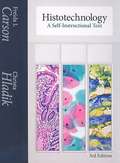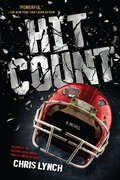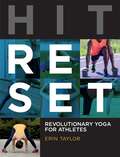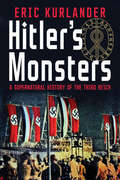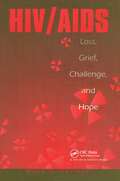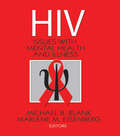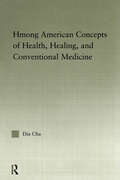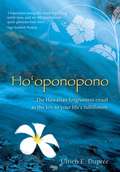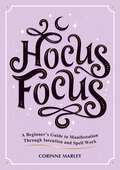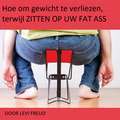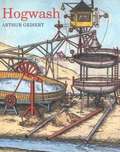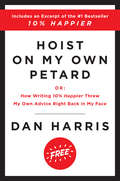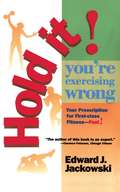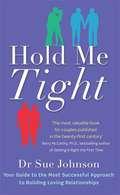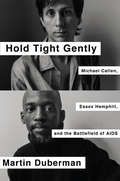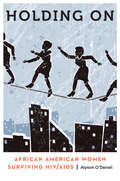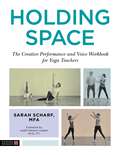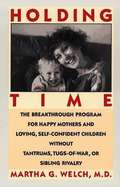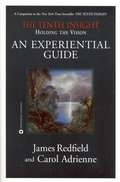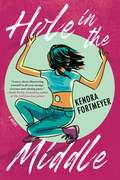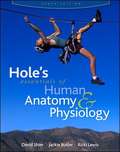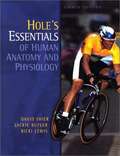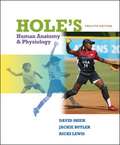- Table View
- List View
Histotechnology: A Self-instructional Text
by Freida L. Carson Christa HladikAn indispensable teaching tool and reference--and a "must" for histotechnologists preparing for the ASCP HTL certifying examination--Histotechnology has been completely updated in the new 3rd edition. New coverage includes chapters on immunohistochemistry and molecular techniques and cytopreparation. You'll also appreciate new features incorporated throughout the book--new images, how-to illustrations for manual techniques, troubleshooting aids, and additional special staining procedures.
Hit Count
by Chris LynchArlo Brodie loves being on the football field, getting hit hard and hitting back harder. That’s where he belongs, leading his team to championships, becoming “Starlo” on his way to the top. Arlo’s dad cheers him on, but his mother quotes head-injury statistics and refuses to watch. Arlo’s girlfriend tries to make him see how dangerously he’s playing; when that doesn’t work, she calls time-out on their relationship. Even Arlo’s coaches begin to track his hit count, ready to pull him off the field when he nears the limit. But Arlo’s not worried about tallying collisions. The cheering crowds and the adrenaline rush convince him that everything is OK—in spite of the pain, the pounding, the dizziness, and the confusion. In Hit Count, Chris Lynch explores the American love affair with contact sports and our attempts to come to terms with clear evidence of real danger. PRAISE FOR HIT COUNT: “Lynch offers a powerful, provocative look at the dark side of popular sports and their potential cost, using Arlo as a cautionary, even tragic tale. Arlo’s rise and fall is handled skillfully, allowing readers into the self-destructive, self-deceiving mindset of an addict without condemning him.” —Publishers Weekly “This unflinching examination of the price of athletic power, with plenty of bone-crunching play-by-play action, is both thought-provoking and formidable.” —The Horn Book Magazine “The strength of this hard-hitting novel is how well award-winning author Chris Lynch portrays the drive and hunger of young football players . . . This intense timely story provides incredible insight as to why knowledge of football's potential danger is not enough to keep young players from taking the field.” —Kirkus Reviews “An important work that raises troubling questions about the culture of violence in American high school sports.” —School Library Journal “Lynch offers a powerful, provocative look at the dark side of popular sports and their potential cost, using Arlo as a cautionary, even tragic tale. Arlo’s rise and fall is handled skillfully, allowing readers into the self-destructive, self-deceiving mindset of an addict without condemning him.” —Publishers Weekly A Booklist 2015 Top Ten Sports Books for Youth A Junior Library Guild Selection
Hit Reset: Revolutionary Yoga for Athletes
by Erin TaylorHIT RESET offers athletes new ways to find more speed, power, and endurance. Yoga coach Erin Taylor&’s HIT RESET program uses yoga to solve the specific problems you face as an athlete. Her revolutionary approach to yoga can improve functional strength, flexibility, muscle recruitment, breathing and focus, core strength, and durability.HIT RESET starts by defining 10 problems that hold athletes back and the yoga solutions that can fix them. Each chapter shows you how your body should work, how to self-diagnose flaws in your movement and functional strength, and how to apply just a few specific yoga poses so you can &“hit reset&” and get back to athletic form. The yoga solutions in HIT RESET take just a few minutes before or after your workout, and you won&’t need a mat or studio classes.Armed with these key, highly effective yoga fixes, you&’ll begin a radical redefinition of balance that can make you a healthier, stronger, and faster athlete.HIT RESET can help you solve: Imbalances that lead to injury by redefining balance from head to toe Feeling easily winded with deep breathing exercises Feeling distracted or nervous with focus exercises Poor posture with core activating and strengthening poses Sleepy feet and stiff calves for a stronger foundation Knee pain with better form and strength poses Stiff hamstrings and sleepy glutes with activation exercises Unstable hips and IT band problems with hip helpers Stiff shoulders and sides with opening poses Yoga can help you in your sport, but only if your yoga is solving the problems you face as an athlete. HIT RESET offers a yoga revolution for athletes by making yoga work for you. Join the HIT RESET revolution and you&’ll find a no-nonsense approach that will make you a stronger, more resilient athlete.
Hitler's Monsters: A Supernatural History of the Third Reich
by Eric Kurlander&“A dense and scholarly book about . . . the relationship between the Nazi party and the occult . . . reveals stranger-than-fiction truths on every page.&”—Daily Telegraph The Nazi fascination with the occult is legendary, yet today it is often dismissed as Himmler&’s personal obsession or wildly overstated for its novelty. Preposterous though it was, however, supernatural thinking was inextricable from the Nazi project. The regime enlisted astrology and the paranormal, paganism, Indo-Aryan mythology, witchcraft, miracle weapons, and the lost kingdom of Atlantis in reimagining German politics and society and recasting German science and religion. In this eye-opening history, Eric Kurlander reveals how the Third Reich&’s relationship to the supernatural was far from straightforward. Even as popular occultism and superstition were intermittently rooted out, suppressed, and outlawed, the Nazis drew upon a wide variety of occult practices and esoteric sciences to gain power, shape propaganda and policy, and pursue their dreams of racial utopia and empire. &“[Kurlander] shows how swiftly irrational ideas can take hold, even in an age before social media.&”—The Washington Post &“Deeply researched, convincingly authenticated, this extraordinary study of the magical and supernatural at the highest levels of Nazi Germany will astonish.&”—The Spectator &“A trustworthy [book] on an extraordinary subject.&”—The Times &“A fascinating look at a little-understood aspect of fascism.&”—Kirkus Reviews &“Kurlander provides a careful, clear-headed, and exhaustive examination of a subject so lurid that it has probably scared away some of the serious research it merits.&”—National Review
Hiv/Aids: Loss, Grief, Challenge And Hope
by Mary O'DonnellFirst published in 1996.This guide for professionals who are working in the complex area of HIV/AIDS provides practical guidance and solutions. Each chapter describes specific needs and solutions based on the options available and personal choice.
Hiv: Issues with Mental Health and Illness
by Michael B. Blank Marlene M. EisenbergLearn why it&’s time for a new era in mental health and prevention scienceHIV: Issues with Mental Health and Illness is a comprehensive examination of the co-morbidity that exists between HIV/AIDS and mental illness. Internationally recognized experts in the field analyze the latest research on why HIV sufferers are at risk of developing mental illness and how people who suffer from mental illness risk contracting HIV through sexual behavior and substance abuse. This unique book focuses on clinical and diagnostic issues, the organization of service delivery systems, and community-based interventions.HIV: Issues with Mental Health and Illness presents vital contributions from physicians, sociologists, nurses, social workers, and psychologists working to develop a plan to reduce the number of persons affected by the epidemic, and to improve the quality of life of those already HIV infected. Aimed at promoting a new era in mental health and prevention science, the book examines vital issues including: the interplay between depression, HIV, and chronic fatigue; condom use among adolescents with psychiatric disorders; predicting HIV risk and how targeted intervention can address multiple health risks; how an increase in emotional stress can affect African-American women concerned about becoming HIV infected; STI risk reduction strategies; how client gender can affect mental health care service delivery; and the implementation of intervention programs as part of supported housing programs.HIV: Issues with Mental Health and Illness examines: bridging the gap between research and practice depression and HIV schizophrenia and HIV mental health policy and infectious diseases HIV prevention community-based participatory research community psychology mental health disparities translation research transforming public health systemsHIV: Issues with Mental Health and Illness is an invaluable resource for public health workers and policymakers, psychologists, psychiatrists, social work nurses, infectious disease physicians, and addictions disease counselors.
Hmong American Concepts of Health (Studies in Asian Americans)
by Dia ChaAmerica's healthcare system in the twenty-first century faces a variety of pressures and challenges, not the least of which is that posed by the increasingly multicultural nature of American society itself. Large numbers among the Hmong, immigrants from the landlocked Asian nation of Laos, continue to prefer their own ancient medical traditions. That these Hmong Americans should continue to adhere to a tradition of folk medicine, rather than embrace the modern healthcare system of America, poses questions that must be answered. This book takes up the task of examining Hmong American concepts of health, illness and healing, and looks at the Hmong American experience with conventional medicine. In so doing, it identifies factors that either obstruct or enable healthcare delivery to the Hmong, specifically a target sample of Hmong Americans resident in Colorado. Drawing upon scientific methods of data collection, the research reveals attitudes currently held by a group of American citizens toward health and medicine which run the gamut from the very modern to those which have prevailed in the highlands of Southeast Asia for centuries.
Ho'oponopono
by Ulrich E. DupréePowerful yet concise, this revolutionary guide summarizes the Hawaiian ritual of forgiveness and offers methods for immediately creating positive effects in everyday life. Exploring the concept that everyone is deeply connected - despite feelings of singularity and separation - four tenets are disclosed for creating peace with oneself and others: I am sorry, Please forgive me, I love you, and Thank you. Offering practical exercises, this simple four-step system encourages readers to focus on difficult conflicts within personal relationships and heal the past. By addressing these issues, owning one's feelings, and accepting unconditional love, unhealthy situations transform into favorable experiences. The final chapters delve into love, relationships, health, career and healing the planet.
Hocus Focus: A Beginner's Guide to Manifestation Through Intention and Spell Work
by Corinne MarleyConjure the magic within you with this modern guide to the ancient art of spell-work and manifestation - all you need is a little hocus focus. Including a variety of spells for every place and occasion - and tips and tricks on how to cast them - this enchanting book is the perfect introduction to invoking the universal energies at your disposal.
Hocus Focus: A Beginner's Guide to Manifestation Through Intention and Spell Work
by Corinne MarleyConjure the magic within you with this modern guide to the ancient art of spell-work and manifestation - all you need is a little hocus focus. Including a variety of spells for every place and occasion - and tips and tricks on how to cast them - this enchanting book is the perfect introduction to invoking the universal energies at your disposal.
Hoe om gewicht te verliezen, terwijl ZITTEN OP UW FAT ASS
by Levi Freuddit is een korte boek maar een plezier en een heel spannend lees. het bevat praktisch advies over hoe werkelijk slaagde verlies gewicht door zitten op onze fat asses. als je medisch hebt problemen, en kan veel training doen, maar nog steeds wegen gewicht dan dit boek voordelig voor u.
Hogwash
by Arthur GeisertIt’s bath time! All the little piggies have had lots of fun playing, and now they’re dirty, muddy, and covered in paint. But their mamas aren’t worried-they have just the machine to turn this Herculean task into an adventure. Anyone who has ever been captivated by the swaying brushes and spinning jets of soap and water at the car wash will be in hog heaven as Arthur Geisert’s intricate etchings reveal the inner workings of an enormous contraption that can lather and scrub a whole farm full of dirty little piglets in no time at all-and that’s not just a bunch of hogwash!
Hoist on My Own Petard
by Dan HarrisI wrote a memoir about a fidgety, skeptical newsman who reluctantly becomes a meditator to deal with his issues – and in the process of publishing it, I occasionally, to my embarrassment, found myself failing to practice what I preach. I was kind of like a dog that soils the rug, and the universe kept shoving my face into it. In 2014, Dan Harris published his memoir 10% Happier. The book—which describes his reluctant embrace of meditation after a drug problem, an on-air freak-out, and an unplanned "spiritual" journey—became an instant bestseller and Dan, to his own surprise, became a public evangelist for mindfulness. Hoist on My Own Petard is the story of what happens to Dan Harris after the runaway success of his memoir and the lessons he had to (re)learn in the process.
Hold It! You're Exercizing Wrong
by Edward JackowskiHold It! You should know that: Walking is not one of the best exercises and will never get you fit For certain body types, stair climbers will not trim your thighs and buttocks or give you slim hips You do not need expensive health club memberships to become fit You do not need to exercise for more than an hour a day to lose weight or increase your fitness level Hold It! You're Exercising Wrong analyzes popular exercise techniques and explains why they do or do not work. Using his client-proven methods of fitness, Edward Jackowski renames body types and stresses their importance when choosing an exercise routine, details the four essential phases of any workout, lists the best exercises for weight loss, and provides motivational techniques to keep you going. Interspersing more than 150 tips on health and exercise, Hold It! You're Exercising Wrong is a no-nonsense, all-you-need-to-know guide to getting fit and staying that way.
Hold Me Tight: Your Guide To The Most Successful Approach To Building Loving Relationships
by Sue JohnsonDeveloped by Dr Sue Johnson over 20 years ago and practised all over the world, EFT has been heralded by Time magazine and the New York Times as the couple therapy with the highest rate of success. Couples who use EFT see a 75 per cent success rate. The therapy programme focuses on the emotional connection of every relationship by de-escalating conflict, creating a safe emotional connection, and strengthening bonds between partners. In HOLD ME TIGHT, EFT pioneer Dr Sue Johnson presents her highly effective therapy model to the general public for the first time. Through case studies from her practice, illuminating advice and practical exercises, couples will learn how to nurture their relationships and ensure a lifetime of love.
Hold Tight Gently: Michael Callen, Essex Hemphill, and the Battlefield of AIDS
by Martin DubermanIn December 1995, the FDA approved the release of protease inhibitors, the first effective treatment for AIDS. For countless people, the drug offered a reprieve from what had been a death sentence; for others, it was too late. In the United States alone, over 318,000 people had already died from AIDS-related complications-among them the singer Michael Callen and the poet Essex Hemphill.Meticulously researched and evocatively told, Hold Tight Gently is the celebrated historian Martin Duberman's poignant memorial to those lost to AIDS and to two of the great unsung heroes of the early years of the epidemic.Callen, a white gay Midwesterner who had moved to New York, became a leading figure in the movement to increase awareness of AIDS in the face of willful and homophobic denial under the Reagan administration; Hemphill, an African American gay man, contributed to the black gay and lesbian scene in Washington, D.C., with poetry of searing intensity and introspection.A profound exploration of the intersection of race, sexuality, class, identity, and the politics of AIDS activism beyond ACT UP, Hold Tight Gently captures both a generation struggling to cope with the deadly disease and the extraordinary refusal of two men to give in to despair.
Holding On: African American Women Surviving HIV/AIDS (Anthropology of Contemporary North America)
by Alyson O'DanielIn Holding On anthropologist Alyson O’Daniel analyzes the abstract debates about health policy for the sickest and most vulnerable Americans as well as the services designated to help them by taking readers into the daily lives of poor African American women living with HIV at the advent of the 2006 Treatment Modernization Act. At a time when social support resources were in decline and publicly funded HIV/AIDS care programs were being re-prioritized, women’s daily struggles with chronic poverty, drug addiction, mental health, and neighborhood violence influenced women’s lives in sometimes unexpected ways. An ethnographic portrait of HIV-positive black women and their interaction with the U.S. healthcare system, Holding On reveals how gradients of poverty and social difference shape women’s health care outcomes and, by extension, women’s experience of health policy reform. Set among the realities of poverty, addiction, incarceration, and mental illness, the case studies in Holding On illustrate how subtle details of daily life affect health and how overlooking them when formulating public health policy has fostered social inequality anew and undermined health in a variety of ways.
Holding Space: The Creative Performance and Voice Workbook for Yoga Teachers
by Sarah ScharfThis expert guide provides yoga teachers with the skills they need to understand how to care for and improve their voices technically, as well as how to express themselves authenticity and effectively as a teacher.Being able to give instruction clearly and with emotional intelligence is part of the personal development that each yoga teacher goes through. This book offers instruction, support and ideas on how to embark on the journey of yoga teaching with greater confidence and mindfulness. After the basics in vocal projection, inflection and intonation are covered, the book details the psychological significance of believing in your own value and finding what makes each teacher unique and accessible to their students. It includes advice on safe boundaries in the student/teacher relationship, self-care, and tips on how to deal with common teaching mishaps with grace and humour. Improvisation techniques and personal stories from other teachers help to expand the reader's skills further to create an affirming, practical guidebook for all yoga teachers.
Holding Time
by Martha G. WelchHolding Time is a breakthrough parenting strategy--a revolutionary approach to mother-child bonding that can make all children happier, more cooperative and more self-reliant. This simple, scientific program is based on the nurturing bondhat forms when you hold your child. With regular holding time sessions, you'll see your children become more loving and less demanding as your own self-esteem grows. Dr. Welch has already enjoyed remarkable success in solving everything from bed-wetting and hyperactivity to sibling rivalry in patients ranging from infancy to their preteen years.
Holding the Vision: An Experiential Guide
by James Redfield Carol AdrienneHow can the Tenth Insight Change My Life? The insights found in The Celestine Prophecy and The Tenth Insight have touched the lives of many millions of people; they are not theoretical When we become aware of how they work, coincidences and serendipitous encounters increase for us. As our level of consciousness expands, our vision of the world is transformed, and we get a glimpse into the heart of creation. And as we learn how thought and visualization precede reality, we can begin to harness them to benefit our own future and the future of the earth. The perfect companion volume for The Tenth Insight, this hands-on guide was written to help individuals and groups implement the ideas found in that book. It provides detailed explanations and exercises on Tenth Insight topics: previous lifetimes, soul groups, birth visions, the use of dreams and prayers, the afterlife, and the World Vision. It helps us experience firsthand how our own lives fit into the eternal cycles... teaches us how to discover our own personal missions...and reveals how we can all take part in the ultimately joyful world changes described in The Tenth Insight.
Hole in the Middle
by Kendra FortmeyerFor every reader who grew up loving R.J. Palacio’s Wonder comes a hilarious, heartbreaking, and magical YA debut about what it means to accept the body you’re given.What if the empty space was what made you whole?Morgan Stone was born with a hole in her middle: a perfectly smooth, sealed, fist-sized chunk of nothing near her belly button. After seventeen years of hiding behind lumpy sweaters and a smart mouth, she’s fed up with keeping her secret. On the dance floor one night, she decides to bare all.At first she feels liberated . . . until a few online photos snowball into a media frenzy. Now Morgan is desperate to return to her own strange version of normal—when only her doctors, her divorced parents, and her best friend, Caro, knew the truth. But tragically Morgan’s newfound openness and Internet celebrity seem to push those closest to her further and further away.Then a new doctor appears with a boy who may be both Morgan’s cure and her destiny. What happens when you meet the person who is—literally—your perfect match? Is being whole really all it’s cracked up to be?
Hole's Essentials of Human Anatomy & Physiology (10th edition)
by Ricki Lewis David Shier Jackie ButlerDesigned for the one-semester anatomy and physiology course, "Hole's Essentials of Human Anatomy and Physiology" assumes no prior science knowledge and supports core topics with clinical applications, making difficult concepts relevant to students pursuing careers in the allied health field. The unparalleled teaching system is highly effective in providing students with a solid understanding of the important concepts in anatomy and physiology.
Hole's Essentials of Human Anatomy and Physiology (8th edition)
by Ricki Lewis David Shier Jackie ButlerDesigned for the one-semester anatomy and physiology course, Hole's Essentials of Human Anatomy and Physiology assumes no prior science knowledge and supports core topics with clinical applications, making difficult concepts relevant to students pursuing careers in the allied health field. The unparalleled teaching system is highly effective in providing students with a solid understanding of the important concepts in anatomy and physiology.
Hole's Human Anatomy & Physiology (11th edition)
by Ricki Lewis David Shier Jackie ButlerDesigned for the one-semester anatomy and physiology course, "Hole's Essentials of Human Anatomy and Physiology" assumes no prior science knowledge and supports core topics with clinical applications, making difficult concepts relevant to students pursuing careers in the allied health field. The unparalleled teaching system is highly effective in providing students with a solid understanding of the important concepts in anatomy and physiology.
Hole’s Human Anatomy and Physiology
by Ricki Lewis David Shier Jackie ButlerA modern exploration of the human, from its interacting organ systems to the cellular and molecular underpinnings of the functions of life.
